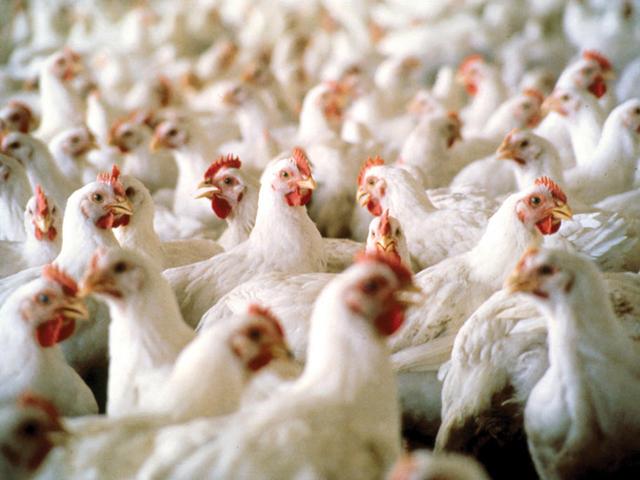Oil Giants Announce Renewables Ventures
Oil Companies to Expand Business Into Renewables, Partnering With Ag
LINCOLN, Neb. (DTN) -- Two major oil companies this week announced plans to expand renewable fuels production by partnering with agriculture.
Chevron U.S.A. Inc. and Bunge North America, Inc., announced on Thursday a joint venture to develop what the companies say are lower-carbon-intensity feedstocks for renewable fuels.
Through the joint venture, the companies said in a news release, they anticipate doubling soybean-processing capacity from 7,000 tons per day by the end of 2024 at Bunge's plants Destrehan, Louisiana, and Cairo, Illinois, while Chevron is expected to contribute about $600 million in cash to the joint venture.
The companies said the joint venture would "pursue new growth opportunities in lower-carbon-intensity feedstocks," as well as in feedstock pretreatment investments.
"As the world's largest oilseed processor, we are pleased to expand our partnership with an energy industry leader to increase our participation in the development of next generation renewable fuels," Bunge CEO Greg Heckman said in a statement. "Together, we share a commitment to sustainability and reducing carbon in the energy value chain. This relationship with Chevron would enable Bunge to better serve our farmer customers by accessing demand in the growing renewable fuels sector."
In the joint venture, Bunge is expected to continue operating its facilities, "leveraging its expertise" in oilseed processing and farmer relationships to manage origination and marketing of meal and plant-based oil.
Chevron would have offtake rights to the oil to use as renewable feedstock to manufacture diesel and jet fuel with lower lifecycle-carbon intensity, in addition to providing market knowledge and downstream retail and commercial distribution channels.
P[L1] D[0x0] M[300x250] OOP[F] ADUNIT[] T[]
"Through our commercial work with Bunge, we have come to appreciate their strong company culture, their strategic desire to advance the production of lower-carbon fuels, their commitment to capital discipline and promotion of sustainable agriculture in their supply chains," said Mark Nelson, executive vice president of Downstream and Chemicals for Chevron.
Also this week, Maryland-based CleanBay Renewables announced a 15-year agreement with BP to sell renewable natural gas processed from poultry litter to BP for retail sale.
CleanBay said in a news release it produces renewable natural gas by mixing poultry litter with water in an anaerobic digester. One of the end products is biogas, which includes methane. The biogas can be processed into RNG and used to fuel vehicles.
The companies said BP initially will sell the fuel to customers in California, where renewable natural gas fits into the state's low-carbon fuel standard.
RNG-fueled vehicles are estimated to result in up to 95% lower greenhouse gas emissions than those fueled by gasoline or diesel.
Michael Thomas, vice president biogas origination at BP, said the partnership will help his company work toward lowering emissions.
"Working with innovative companies like CleanBay will be key for BP to reach our net-zero ambition," Thomas said in a statement. "As one of the largest suppliers of RNG to the U.S. transportation sector, this agreement will help us continue delivering competitive, reliable energy solutions."
Thomas Spangler, executive chairman of CleanBay said, "By collaborating with BP, we continue taking steps to positively impact our environment. Not only will our process improve the air, soil and water quality around our agricultural facilities, but our RNG is a sustainable, environmentally-friendly way to help reduce GHG emissions."
CleanBay focuses on the production of sustainable RNG and engineered organic fertilizers.
CleanBay said it was "actively exploring" potential production sites in the mid-Atlantic, Southeast and California. The company said its goal is to establish a portfolio of RNG and power facilities that reduce local emissions and provide farmers with an alternative use for their poultry litter and a fertilizer to increase food production.
Each of the 30 proposed CleanBay facilities is expected to generate enough sustainable energy to power 9,200 cars per year by recycling more than 150,000 tons of poultry litter annually, the company said in a news release.
"RNG is a necessary energy transition approach in the near-term, but green hydrogen and the use of RNG to power electric-vehicle charging stations will be the backbone of a fast transition to a net-zero future," CleanBay CEO Donal Buckley said.
Todd Neeley can be reached at todd.neeley@dtn.com.
Follow him on Twitter @DTNeeley
(c) Copyright 2021 DTN, LLC. All rights reserved.




